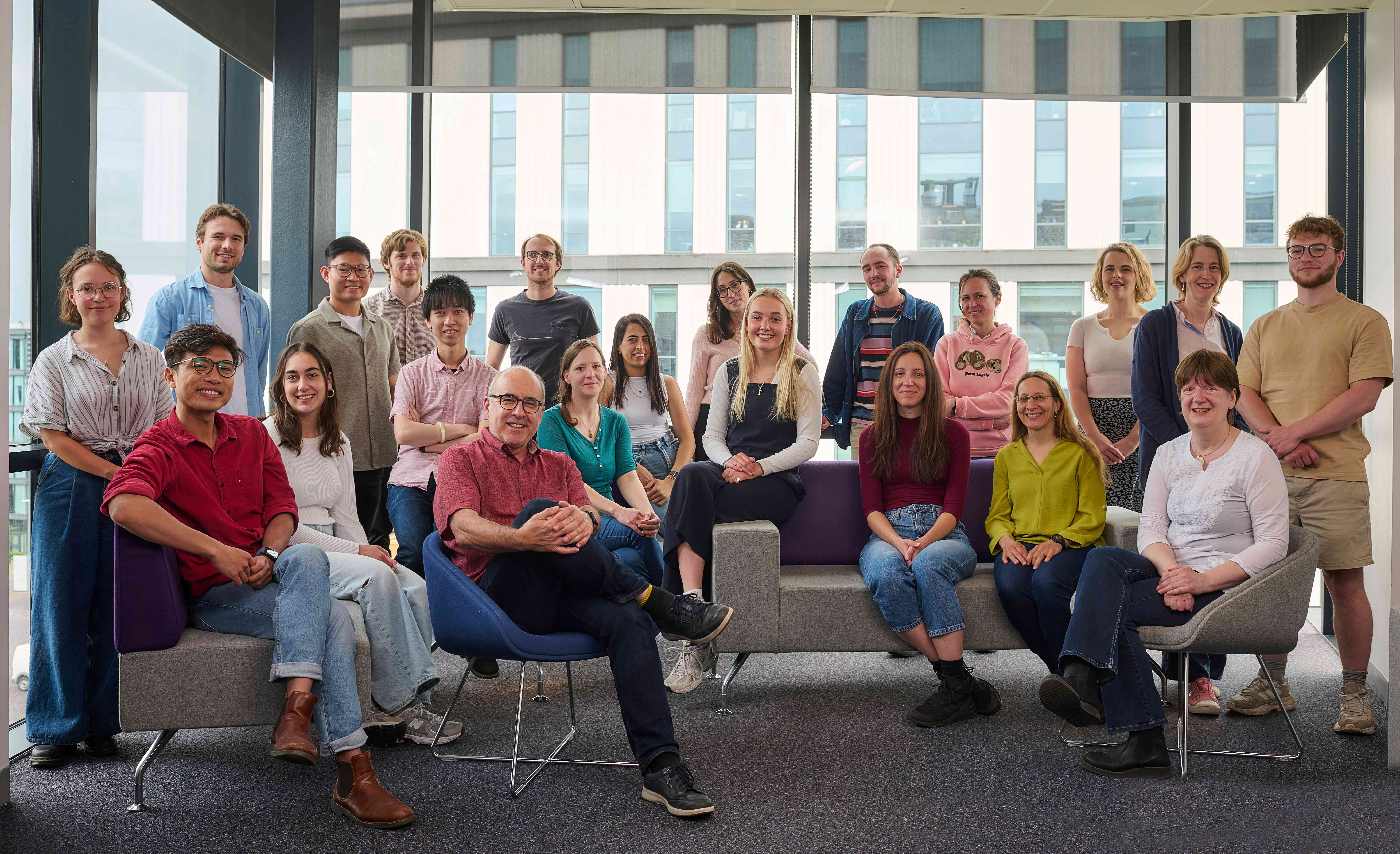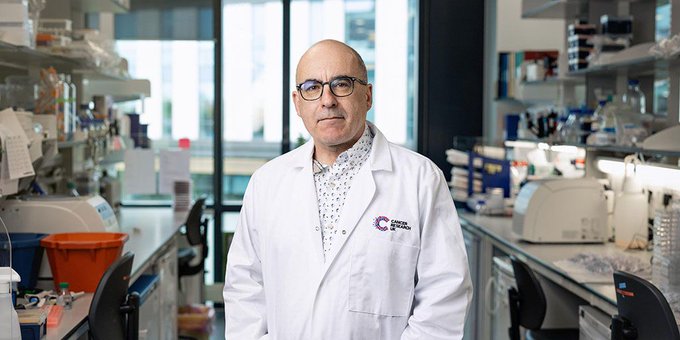Jackson Group
Maintenance of genome stability

Research Summary
DNA is constantly damaged by environmental and internal processes within the body. Cell survival and genome integrity are promoted by DNA repair and associated processes, known as the DNA-damage response (DDR). Our research aims to characterise the cell biology and mechanisms of established and new DDR components and pathways, and to identify ways to translate this knowledge to better understand and treat human diseases.
Introduction
We have developed strong expertise in CRISPR-based gene-editing and screening technologies (top panel), which together with focused mechanistic studies, have allowed us to successfully interrogate and identify new players in DNA damage responses, including in clinically relevant settings.

For example, we have conducted genome-wide CRISPRi screens in the presence or absence of chemicals, such as formaldehyde, to identify factors involved in the repair of DNA-protein crosslinks (DPCs). Covalent DNA-protein cross-links (adducts) are toxic DNA lesions that block replication and transcription, and require repair by multiple pathways.
By comparing and contrasting hits arising from our genetic screens and using a novel method for the genome-wide mapping of DNA-protein adducts, we (in collaboration with Julian Stingele’s lab, Munich) discovered the first transcription-coupled DPC repair pathway (Carnie & Acampora et al, Nature Cell Biology, 2024). Defects in this pathway likely contribute to the severe neurological defects observed in Cockayne Syndrome patients.


Panel shows the recovery over time of RPE1 cells following formaldehyde treatment (induces DPCs), showing that in the absence of the Cockayne Syndrome gene CSB recovery of transcription is delayed, indicated by delayed appearance of EU staining (purple), a marker of RNA synthesis, and NPM1 staining (green), a marker of nucleolar ribonucleoprotein structures.

Prof Sir Steve Jackson PhD FRS FMedSci
Senior Group Leader,
Associate Director of Enterprise and Partnerships
Group Members
-

Aldo Bader
Research Associate
-

Alexandra Hart
Research Assistant
-

Almudena Serrano-Benitez
Research Associate
-

Andrea Voigt
Research Assistant
-

Chen Gang Goh
Postgraduate Student
-

Chloe Palma-Chaundler
Postgraduate Student
-

Emma Reilly
Postgraduate Student
-

Eugenia Arrieta
Research Assistant
-

Fadia Bou-Dagher
Postgraduate Student
-

Jordan Wilson
Postgraduate Student
-

Josie Coulthard
Research Assistant
-

Kate Dry
Senior Research Associate
-

Kathy Oswald
Executive Assistant
-

Megan Cassidy
Research Associate
-

Mike Woods
Bioresearch Manager
-

Muku Demir
Scientific Associate
-

Nadia Gueorguieva
Research Assistant
-

Oliver Lewis
Postgraduate Student
-

Patryk Slazak
Research Assistant
-

Rimma Belotserkovskaya
Senior Research Associate
-

Samah Diab
Research Associate
-

Sean Richards
Research Assistant
-

Simon Lam
Research Associate
-

Verena Gautsch
Postgraduate Student
-

Yaron Galanty
Associated Staff
Related News
See all news-

Professor Sir Steve Jackson elected as a fellow of the American Association for Cancer Research
16th February 2026
Senior Group Leader Sir Steve Jackson has been elected as a Fellow of the American Association for Cancer Research Academy in the Class of 2026.
Find out more -

World renowned Cambridge scientists back call for urgent investment
22nd February 2024
A coalition of the world’s most renowned cancer researchers, have joined forces with Cancer Research UK to call on philanthropists.
Find out more -

Knighthood for Professor Stephen Jackson
16th June 2023
Prof Stephen Philip Jackson has been awarded a knighthood in the King’s first Birthday Honours List for his services to innovation and research.
Find out more
Publications
-
Decitabine cytotoxicity is promoted by dCMP deaminase DCTD and mitigated by SUMO-dependent E3 ligase TOPORS.
E-pub date: 1 Jun 2024
-
Transcription-coupled repair of DNA-protein cross-links depends on CSA and CSB.
E-pub date: 1 May 2024
-
Genetic determinants of micronucleus formation in vivo.
E-pub date: 1 Mar 2024
-
RAD54L2 counters TOP2-DNA adducts to promote genome stability.
E-pub date: 8 Dec 2023
Laboratory Efficiency Assessment Framework (LEAF)
The Jackson Group contributed to the Institute’s LEAF Silver accreditation, see the Sustainability webpage for more information.


